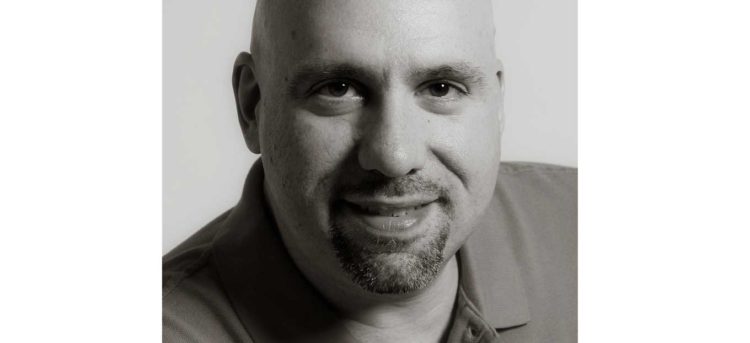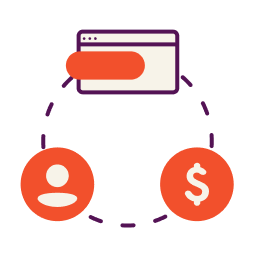Rich Kahn founded marketing firm eZanga 12 years ago to help companies grow their businesses through online advertising. The company offers a number of homegrown innovations that ensure clients’ campaigns are optimized and protected from fraudulent traffic.
The Start
How did you get started with your business?
It was nothing really spectacular. My wife and I started this business because we needed to pay the bills and we had this skill. Before we started this company, I had 10 years of experience running online marketing companies that I owned.
How did you fund your business in the beginning? Have you taken on any additional funding since?
We started this business with $5,000 that we funded out of our personal checkbook. We started slow and did 99 percent of the work ourselves. We used that money to market. As we produced income, we took that money and sunk it back into the business so we could grow and build up the business faster. Twelve years later, we still haven’t taken on any outside funding.
Who was your first customer?
I was in this space for 10 years, so I knew a lot of people. I reached out to a few of my acquaintances who became my first customers. Once we got going, I started doing a lot of cold calling for customers. I would look at companies with things that I needed to help build the business, and then I’d just pick up the phone and call them.
Running the Business
How did you learn to run your business?
It seems like just yesterday that we were working from home. All of a sudden, you find yourself in this position. When someone introduces you as their boss, you suddenly realize that you’re running a company – How’d that happen?! You don’t realize it, because you’re in the thick of making sure everything’s running and doing what you have to do. You have to wear a lot of hats and run around from department to department, making sure everyone has what they need and has some direction. You just fill in the gaps of doing what needs to be done to get the business where it needs to be.
What was the biggest mistake you made in your first year?
If you’re not making mistakes, you’re not growing a business. Nobody is perfect, and nobody goes without making mistakes.
When we first built the business, funds were limited and we didn’t have a lot to build our website. We went to somebody who we knew could build the website for a couple hundred bucks. It wasn’t the greatest, but we just needed something to get up online. As we started growing, I started calling bigger companies, and we didn’t have a really professional website. Someone who turned us down told us, “Well, look at your website. It looks like you spent a few hundred bucks to put it together. It doesn’t look like you spent much to invest in your business.” And they were right.
We probably could have landed that client earlier had we spent a little more time shopping around for a designer. Even though we had limited funds, we could have found someone who could have given us a better look for a cost-effective price.
What’s the smartest thing you did in the first year?
We did a lot of the work ourselves. It’s not like we got a big check and just started spending it. We watched our money really closely and paid attention to the details. With our business and with most businesses, if you don’t pay attention to the details, a little money here and there can easily absorb the nest egg that you’re using to grow the company. The details will make or break you as a company, especially when you’re starting out.
What’s the most rewarding thing about running your own business?
To me, it’s the day-to-day challenges. When I first got out of school and started working for different companies, I was stuck in a position as the low man on the totem pole. You do what you have to do, day in and day out, and it doesn’t change. It gets boring, because there’s no challenge. It’s just the same thing over and over again.
In running a business, you get to dictate more direction, choose where you want to go with the business and choose who you want to work with. Ultimately, you get to play in a lot of different areas of business, and that keeps you challenged. Twelve years later, I still love coming in to work on Mondays. I have a nice, relaxing weekend, and I love getting back into the business and accomplishing things.
What’s the most difficult/challenging thing about running your own business?
Employees. We have 40 employees in the company. Finding good people for the positions that you have is probably the hardest thing for any business. There are a lot of good people out there, but it’s hard to find out if a person is the right person for a particular job. Lining people up to match their skill set with the job you need done in your company is the hardest thing. We’re also in a more rural area, so it’s even more tricky to find the right people.
What’s the most surprising thing about running your own business?
I wouldn’t say anything has surprised me. There are always little things that have popped up that I wasn’t expecting, but that’s part of running a business. But, if you’re prepared and doing your job and keeping your eyes on the details, not too many things pop up and surprise you.
What business owner or entrepreneur do you admire most? Who is your role model?
Since I was 12-years-old, I’ve looked up to Nolan Bushnell, the founder of Atari. He doesn’t get the notoriety of a Steve Jobs, but he’s always been advanced for his time, in my opinion, with what he’s been doing.
What I’ve Learned
What advice do you have for others starting their own business?
When you’re starting your own business, really plan out what you’re looking to do and how you plan to get there. A good exercise is to sit down and brainstorm, “If money wasn’t an issue, what would you want your company to do and how would you do it?” Put it all down and then see what you can attack with your current resources. Then make a roadmap.
We don’t have a business plan, because our business changes so rapidly. Having a business plan puts us under a set of rules. If I walk in one morning and a customer has a specific need, I’ll get my developers working on it immediately, even if it isn’t part of the plan, because I need it now. I recommend having a general direction, but not a strict business plan, rather a guide to where you want to go.
What do you wish you had known before starting your business?
I just saw a video interview of Nolan Bushnell, and he made a very interesting comment. A young girl just out of school had just started a company. A month or two in, she had a friend who was an investor offer her $500,000 for 51 percent of the company. Growing up, I was always told to be careful and not give a controlling share to somebody. But she asked Nolan Bushnell if she should take the investment. My answer would have been, “no.” But his answer was shocking to me. He said, “Yes, jump in with both feet. If someone is willing to put that money behind you, they’re going to help you grow and succeed, because they’re not going to put half a million dollars in a business and not help you succeed. In the worst-case scenario, if you as the president of the company don’t know what you’re doing, the investor will fire you and put someone in place who can do it. You still own 49 percent of the company. What’s the worst you can lose?” It was just a different insight on seeing things.
I’ve been running businesses in the online marketing space for 22 years. Had I had that information early on, I think I would have done a few things a little differently.
About the Author — Ashley Sweren is a freelance marketing writer and editor. She owns her own small business, Firework Writing, located in San Jose, California.
This article was originally written on August 19, 2015 and updated on July 28, 2016.


Have at it! We'd love to hear from you and encourage a lively discussion among our users. Please help us keep our site clean and protect yourself. Refrain from posting overtly promotional content, and avoid disclosing personal information such as bank account or phone numbers.
Reviews Disclosure: The responses below are not provided or commissioned by the credit card, financing and service companies that appear on this site. Responses have not been reviewed, approved or otherwise endorsed by the credit card, financing and service companies and it is not their responsibility to ensure all posts and/or questions are answered.